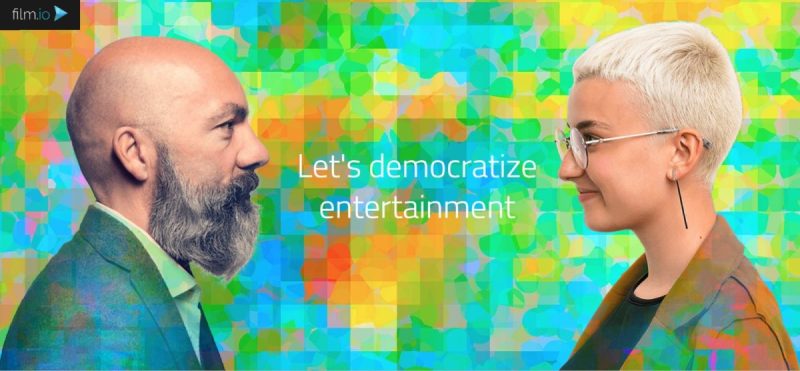The Gig Economy And Decentralised Filmmaking: A Conversation Between Dinis Guarda And Chris J. Davis, CTO of Film.io

Categories :
Dinis Guarda interviews Chris J. Davis, CTO and Co-Founder of Film.io, in the latest episode of his YouTube podcast. The two discuss the democratisation of filmmaking and content creation process using DeFi and other blockchain technology. The podcast is powered by openbusinesscouncil.org and citiesabc.com.
Chris J. Davis is a technologist and entrepreneur, and a content creator. He is the CTO and Co-Founder of Film.io, a decentralised entertainment ecosystem that is democratising the filmmaking and TV industries using DeFi and other blockchain technology.
Being a content creator himself, he understands that the gig economy offers an allure of flexible schedules and the opportunity to monetise creative skills of a wide spectrum of individuals, including freelance writers, video producers, graphic designers, and social media influencers.
However, stating the challenges that exist in this realm include an inconsistent income, due to unfair and unjust split of revenue, while struggling to manage between the mainstream job and passion.
“The established people and brands don’t want to give up the stranglehold on the revenue models. a lack of job security, and limited access to traditional employment benefits.
Secondly, as technologists and developers, we have not been able to give people the tools that are easy to understand and cater to their needs at priority”, he told Dinis.
Film.io, he says, is a creator and fan-focussed software platform that empowers them with more influence in the creative process: creators with key access to resources, and investors with more meaningful data.
“We leverage blockchain and its technology to help create new revenue streams for creators that are not managed by large middle persons that are taking away large chunks of their revenue for themselves as a fee. So, we’ve created decentralised forms of not only finance, but also revenue generation”, he told Dinis.
Film.io enables networks and community building
One of the key assets for content creators in the gig economy is the networks they build and engage with. Online communities, social media platforms, and content-sharing websites have become invaluable spaces for connection and collaboration. Content creators utilise these networks to find collaborations, share expertise, and access valuable resources.
“We are building a platform for creators to connect with investors and studios, so that they can partner together as a team, and create good content. Studios have money, Creators have content. They just have to come to an equitable agreement, moving into development and the production process.”, Chris said.
Networking within niche communities often leads to exciting opportunities, allowing creators to showcase their work to a wider audience and form lasting professional relationships. “This is not a one-time process”, he says. “You can always go back to the network to fill certain gaps during your development and production process, or can showcase your work to get feedback. Your community will always stay with you.”
How Film.io facilitates digitalising filmmaking while managing IPs?
During the interview, Dinis asked Chris about the challenges posed by intellectual property issues in the process of digitising filmmaking.
Chris explained that clear contractual agreements are vital in digital filmmaking to outline IP ownership and usage rights. “The actual IP rights in Film.io are retained by the creator itself. We are integrating with things like open law, where we can create legally binding contracts like smart contracts that can establish a framework of agreement and execution.”
He also expressed his concern that the streaming platforms, video-on-demand services, and digital marketplaces sometimes carry out unjust and unfair setting terms for distribution rights, revenue sharing, and geo-blocking of content.
“We believe very strongly that not only filmmakers need to be fairly compensated for their work, but other players in the content creation, generation, distribution, and production process - all of them to be compensated fairly.”

Pallavi Singal is the Vice President of Content at ztudium, where she leads innovative content strategies and oversees the development of high-impact editorial initiatives. With a strong background in digital media and a passion for storytelling, Pallavi plays a pivotal role in scaling the content operations for ztudium’s platforms, including Businessabc, Citiesabc, and IntelligentHQ, Wisdomia.ai, MStores, and many others. Her expertise spans content creation, SEO, and digital marketing, driving engagement and growth across multiple channels. Pallavi’s work is characterised by a keen insight into emerging trends in business, technologies like AI, blockchain, metaverse and others, and society, making her a trusted voice in the industry.









